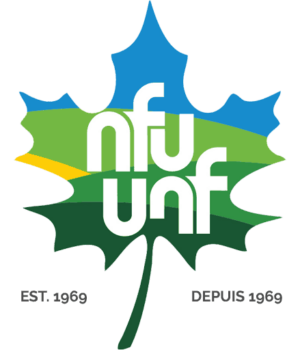Op-ed, By Cathy Holtslander
Provided by National Farmer’s Union
On May 18, Health Canada announced how it will regulate foods from gene-edited plants. The new “regulatory guidance” turns its back on science and transparency by actually exempting many new gene-edited foods from regulation.
Our health minister, Jean-Yves Duclos, has decided to allow Health Canada to open the door for product developers to sell gene-edited organisms without any government oversight. He has abandoned his responsibility to Canadians who rely on the government to ensure our food system is safe. Without proper regulation, there is no assurance for Canadians or our export customers, that our products are safe.
Health Canada has a duty is to protect and inform Canadians. The Food and Drug Act Regulations are clear in stating that foods that have been genetically modified “to change the heritable traits of a plant, animal or microorganism by means of intentional manipulation,” and which have no history of safe use as food in Canada, are subject to regulation as “novel foods.” Powerful corporations have urged Health Canada’s bureaucrats to reinterpret the Food and Drugs Act Regulations so as to instead deem many gene-edited foods “non-novel.” By adopting this baffling interpretation, Health Canada has handed its work as a regulator over to the very companies it is supposed to regulate.
Health Canada asks Canadians to believe that the absence of foreign DNA in the final product makes a gene-edited plant virtually the same as a conventionally bred plant. In fact, gene editing uses new and emerging genetic engineering techniques to make significant changes to the genome of a plant. Unlike older genetic engineering techniques, gene editing has the capacity to force genetic changes by overriding cell repair systems that have evolved over millennia to protect vital areas of DNA from random mutations. The results could not have occurred without gene editing, so these plants have no history of safe use as food in Canada. They are clearly “novel” plants.
Ongoing research in gene editing is continuously adding knowledge that reveals new information and fills gaps in our current understanding. Today’s regulators and plant developers cannot assume that they have a full understanding of how gene editing will affect the organism as a whole, its future progeny, its environment, or those who consume it as food. This is why we need careful and thorough public safety review of all gene-edited plants and foods.
We are told that science is the foundation of our regulatory system. However, through its new regulatory guidance, Health Canada is in effect, pre-approving gene-edited foods. The pre-approval rests on assumptions that, as long as they do not contain foreign DNA, Health Canada does not need to review or assess these products, the public does not need to know whether they are gene-edited, and that there will be no need to have tools to monitor them once they are on the market and in our food system.
The “absence of foreign DNA” pathway to commercialize products without regulation is an incentive for biotech companies to focus on genetically engineering varieties to have no foreign DNA in order to avoid triggering a government safety assessment and mandatory public notification. Companies like Corteva, Bayer, BASF and Syngenta that dominate the seed market also control access to gene editing technologies through patents and licenses. Health Canada’s new guidance will thus help the world’s biggest seed and chemical companies vastly enhance their power to control, manipulate and profit from our agricultural crops’ very DNA.
A regulatory guidance document is a somewhat obscure bureaucratic tool intended to explain how the government plans to interpret a regulation. Regulatory guidance is supposed to simply translate the legal language of the regulation into specific technical language to describe what is needed for compliance. Regulatory guidance is supposed to clarify the rules – not change them. Health Canada has developed a guidance document that bends our established regulation beyond the breaking point.
Allowing self-interested corporations to decide if their own products trigger government safety review is not regulation. Letting companies decide whether to reveal their product as gene edited is not transparency.
Canadians demand good, science-based, transparent regulation in the public interest. To uphold his mandate to protect the safety of our food supply and inform Canadians, Health Minister Duclos needs to take immediate corrective action and withdraw the proposed regulatory guidance.
Cathy Holtslander is the Director of Research and Policy at the National Farmers Union. She provides research support to advance NFU policy recommendations and, in collaboration with NFU members, analyses and critiques existing agriculture and related policies.







![Kenopic/Smith Auction [Paid Ad]](https://whitewaternews.ca/wp-content/uploads/2018/10/advertising-100x75.jpeg)

